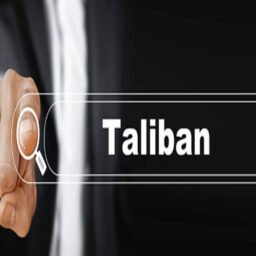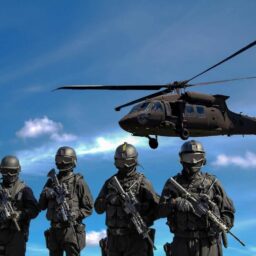Introduction
The world has witnessed the war from ancient times. From the fight for the kingdom in ancient times to the political rivalry in modern times we have seen a war between two states or groups. After the devastating world war II, the need for rules and regulations for war arises. There are various conventions, treaties, pacts signed between different countries to control the effects of war. International humanitarian law is a kind of international law that seeks to limit the effects of war. It protects the persons who are not participating in war and restricts the means and modes used in war. Geneva conventions of 1949 formed the basis of International humanitarian law. In a contemporary era where there are various nuclear power states, this law is necessary to protect the world from deadly war. In this blog, the author will discuss what is International Humanitarian law and the role of International humanitarian law in India’s Kargil conflict and in the recent India- China Galwan valley conflict.
What is International Humanitarian Law?
International law regulates the relation between two or more states. All the countries have to follow these laws while dealing internationally. International humanitarian law is a kind of law that deals with laws related to war. These laws are legally binding on states by agreements, treaties or conventions. International humanitarian law deals with the armed conflict between the states but it does not interfere in the internal matters of state. This law applies only when the war starts and is binding on all states regardless of who started the fight. It basically covers two areas, first, it protects civilians and people who are not taking part in the war and second, it restricts the means and weapons used in the war. It also protects wounded, sick combatants and prisoners of war.
International humanitarian law has provisions to provide necessary facilities to prisoners of war, treatment to the wounded and sick combatants by the states who have captured them. This law provides protection and supply of necessary things to the civilians by the enemy country who captured it. This law also protects the rights of prisoners, vulnerable children and women. It ensures that the needs shelter food, a medical assistant should be provided to civilians of the states. It prohibits the forceful migration of civilians from their state during armed conflict. International humanitarian law banned certain kinds of weapons to use during armed conflict and some weapons which are permitted to use are subject to limitations.
The Geneva Conventions 1949 formed the base of International humanitarian law. The provisions of these conventions are adopted in International humanitarian law like the protection of civilians who are not taking part in armed conflict and restricting methods and modes of armed conflict. The major part of this law is found in the four Geneva conventions of 1949. Additional Protocols of 1997 and 2005 were also created as legal provisions in International humanitarian law. It includes various other treaties such as the 1954 Convention on the protection of Culture Property during armed conflict, the 1972 Biological Weapons Convention, convention on chemical weapons.
International humanitarian law and India
India has a certain commitment to international conventions and international treaties. India is part of various international agreements at the global level. It has signed bilateral treaties with various countries to maintain and promote peace. The constitution of India under Article 51[1] directs the promotion of international peace and security and directs that the state shall foster respect for international law and treaty obligations in the dealings of organized people with one another. India ratified and adopted the Geneva conventions 1949 with the view to adopt the principles of these Conventions. India under Article 253[2] of the constitution ensures the practice of international humanitarian law. According to this article, parliament has the power to make laws for implementing any treaty, conventions or agreements made at international conferences, associations and with other countries.
During the Kargil war between India and Pakistan in 1999, the act of brutalization of the Indian army is a clear violation of Article 3[3] and Article 13[4] of the Geneva Convention. The army personnel who were captured by Pakistan were prisoners of war, and they must be treated according to provisions of law but Pakistan treated them in an inhuman manner and thus violated International humanitarian law. In 2019 during an airstrike in Pakistan, Indian Air Force wing commander Abhinandan Varthaman was captured by Pakistan. According to Article 4[5] of the Geneva Convention, he was a prisoner of war and International humanitarian law was applicable in this case because there was an armed conflict between Indian and Pakistan. Later Pakistan released the commander according to provisions of the Geneva conventions in which both the parties are signatories.
In June 2020 there was a deadly clash between Indian and Chinese soldiers. Both sides witnessed the death of their soldiers. After 1975 this was the first time which soldiers were killed in military clashes between Indian and China. Both India and China have rectified and signed the Geneva Convention of 1949. Indian soldiers were captured by Chinese soldiers but had not been treated as prisoners of war. Later, after the talks and agreement between both the countries soldiers were released. The international humanitarian organisation has made it compulsory to follow the rules of the Geneva Convention during a situation of conflict. China has violated the international norms as it has started the unprovoked war against the Indian military on the line of actual control in India. International humanitarian authorities should take action regarding this conflict to avoid these kinds of clashes in future. India follows the policy of not initiating the war first. It always believes in peace and has signed various agreements and conventions to maintain peace.
Conclusion
In an era of deadly weapons and advanced technology, International humanitarian law is very important to control the situation during the war. International humanitarian law put restrictions on the use of weapons and modes in conflict and protect the civilians who are not involved in the war. Earlier when there were no such rules and regulations regarding the prisoners of war or for the civilians they were treated brutally. Earlier when there were no such laws civilians and military personnel were tortured by the states who captured them. The object of international humanitarian law is to limit the effects and sufferings of armed conflict. Geneva Convention of 1949 developed principles of International humanitarian law. India has signed and ratified the international humanitarian law and also adopted in the constitution to respect the international rules and agreements.
Author(s) Name: Aadya Dipti (Banasthali Vidyapith, Rajasthan)
References:
[1] INDIA CONST. art. 51.
[2] INDIA CONST. art. 253.
[3] Geneva Convention Act of 12 August 1949, art. 3.
[4] Geneva Convention Act of 12 August 1949, art. 13.
[5] Geneva Convention Act of 12 August 1949, art. 4.








